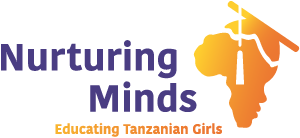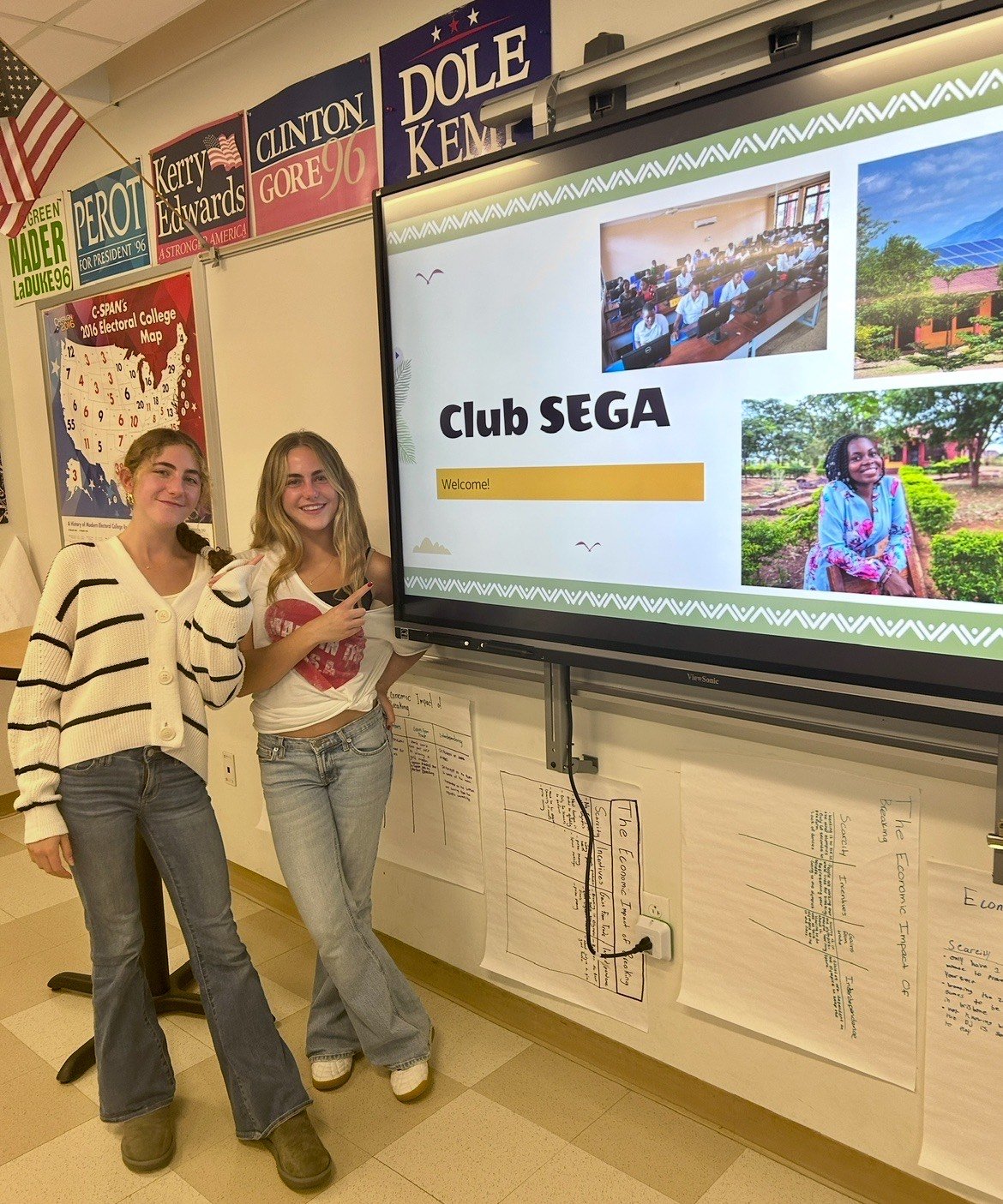Girls Helping Girls: A Student’s Global Impact
They say the body keeps score—every experience, every moment, quietly stored away until something brings it back to life. A scent. A sound. A building.
For Audrey, it was the Tanzanian Embassy in Washington, D.C.
Driving by that building during a family trip, a flood of memories returned: the penny war fundraiser in her fourth-grade classroom, the jars lined up by the whiteboard, the friendly competition that masked something deeper. She remembered the fun—but also the disbelief she felt, even then, that girls somewhere in the world were facing unimaginable barriers just to attend school.
That memory—dormant but never forgotten—planted the seed for something bigger: a desire to act, to give back, to be part of the solution.
From Spark to Action
Back home, Audrey couldn’t shake the feeling stirred by the sight of the embassy. She began asking questions. She tracked down her fourth-grade teacher, who helped connect her with staff at Nurturing Minds. A few introductions later, she was in touch with Myranda, the Cultural Exchange Coordinator, and Betsy, a longtime volunteer and board member.
Inspired by what she learned, Audrey set out to create Club SEGA at Staples High School. Despite school policies that didn’t allow starting a new club mid-year, her persistence and passion kept the idea alive. She rallied friends, navigated red tape, and stayed in contact with the Nurturing Minds team. By the 2024–2025 academic year, Club SEGA was officially launched with a mission to raise awareness and $750 to support a girl’s education in Tanzania.
The Heart of SEGA
Audrey’s leadership soon made waves. She invited SEGA graduate Maria to speak to her journalism class, where Maria shared her experience studying architecture in Tanzania and the invaluable role SEGA Girl’s School played in her education journey.
“I remember one of my classmates asking Maria what she liked to do in her free time, and she said, ‘study,’” Audrey recalls. “That one word stopped me in my tracks. It made me reflect on my own privilege and how I sometimes took school for granted. It also allowed me to see how much education meant to Maria. Hosting Maria in our class helped us gain a deep respect for her work ethic and the drive SEGA students have to make the most of their opportunities”
That single word—study—was a powerful validation of everything Audrey had been working toward. It reminded her that for girls like Maria, education isn’t a guarantee—it’s a hard-earned opportunity. And it reinforced why supporting SEGA and Nurturing Minds matters: to ensure that access to education isn’t determined by circumstance, and that every girl with the desire to learn has the opportunity to unlock her full potential.
Most recently, Audrey and her peers met SEGA graduates Uweza and Maggie who were in New York attending the 69th United Nations Commission on the Status of Women conference. Together, they explored the city, shared stories, and laughter.
Whether walking the streets of New York City with Maggie and Uweza, or listening to Maria speak passionately about her studies, Audrey discovered that SEGA wasn’t just a school—it was “a living, vibrant community of girls with names, voices, and dreams.”
Bridging Continents, Building Sisterhood
Audrey’s connection to SEGA graduates went far beyond a school project. It wasn’t just about one club, one fundraiser, or even one school. It was about building something bigger—a bridge between girls across continents. A global sisterhood rooted in mutual respect, shared values, and deep connection.
“SEGA isn’t just a school. It’s a home,” Audrey reflects. “Every interaction I’ve had with students and staff has been filled with warmth. There’s so much love there. It makes you want to be part of it.”
This spirit of connection is what makes cultural exchange so powerful. It helps people see themselves not just as individuals from one town or country, but as members of a shared, interconnected world. It transforms global issues like girls’ education, from distant concerns into deeply personal commitments.
And when we engage with people from different cultures, we begin to understand something powerful: while our circumstances may differ, our dreams, struggles, and hopes are deeply human. And that kind of empathy? That’s where real change begins.
Global Changemakers
Thanks to Club SEGA and her involvement with Nurturing Minds, Audrey became more globally aware, more politically engaged, and more passionate about education equity. When Audrey learned that Nurturing Minds had lost a major funding due to dismantlement of USAID, the impact felt personal. Determined to better understand the broader implications, Audrey began attending USAID webinars and researching how policy decisions in Washington can ripple across continents.
“With everything going on in the world, I’ve started to understand how interconnected things are. What might seem like a local school initiative actually ties into global issues—education, women’s rights, international policy.”
As she prepares to attend McGill University to study International Management, Audrey hopes to explore the intersection of global business, foreign language, and social impact.
Audrey’s Advice to Young Changemakers
“If I’ve learned anything this past year, it’s that nothing meaningful happens without hard work. But hard work doesn’t always look the same. Sometimes it’s intense and all-consuming. Other times, it’s as simple as writing that email or asking the first question.
“For me, it started with reaching out to Myranda about a vision I couldn’t let go of. That one message opened the door to something bigger. But I’ve also learned that passion and communication go hand in hand. If you don’t have the motivation to see your vision through, it’s easy to let it fade. So whatever your idea is: do something. Take the first step. The rest will follow.”
Do Something
Audrey’s story is a reminder that people don’t need permission to make a difference—they just need support. When empowered, young people become catalysts for global transformation. What started as a classroom memory became a movement—one girl creating space for connection, understanding, and action across continents. And it all began with a seed planted in fourth grade.
That’s the power of early exposure to global issues and meaningful causes: it can ignite a lifelong commitment to creating meaningful change.
Girls like Audrey aren’t the leaders of tomorrow. They are leading now.









